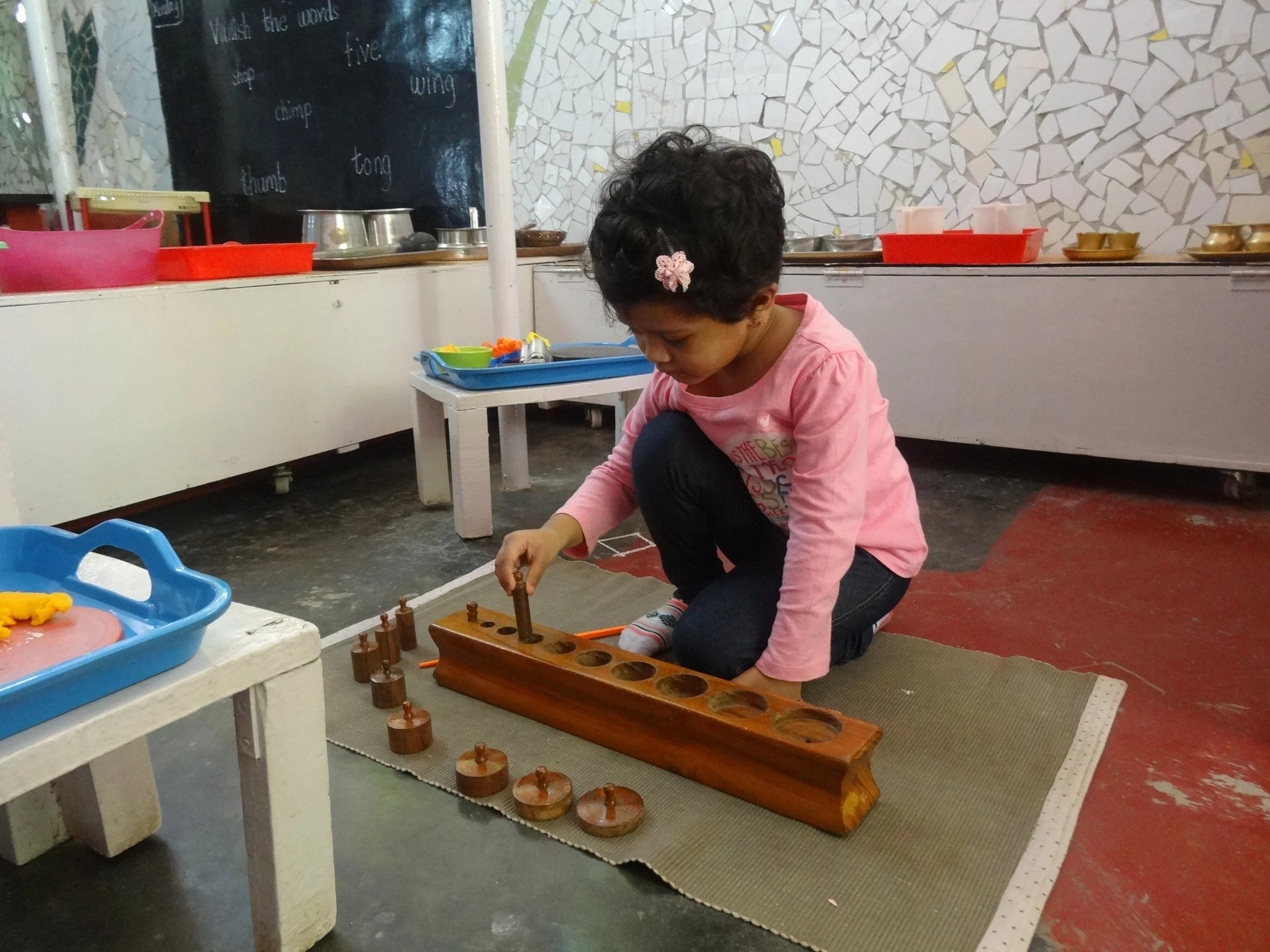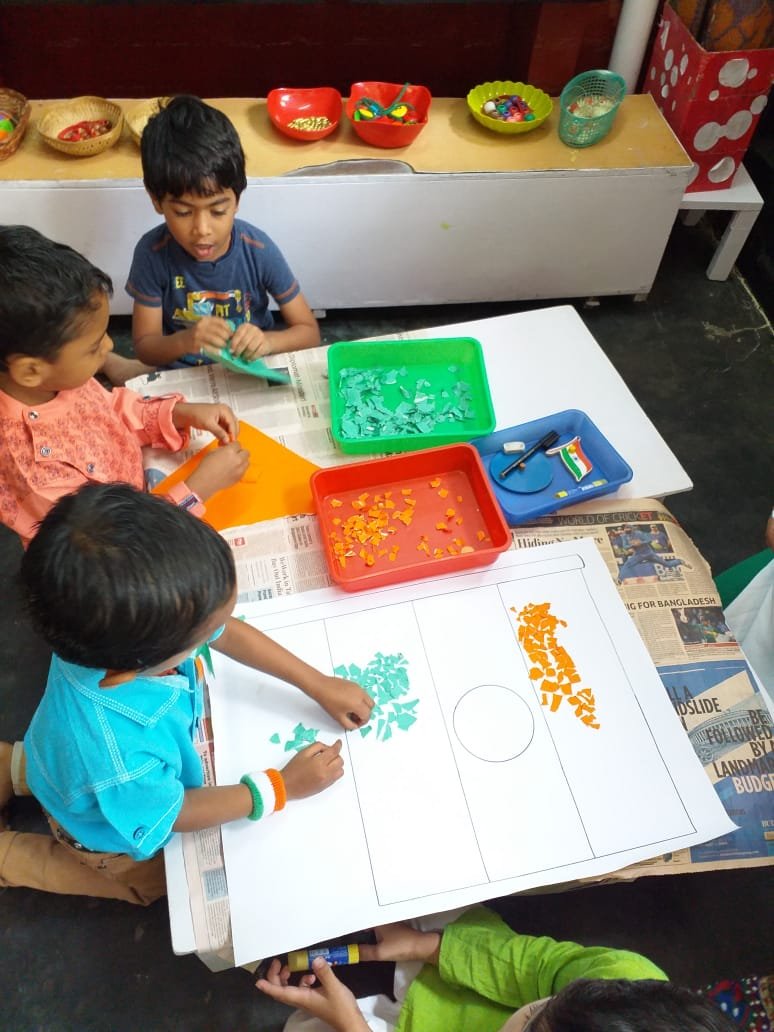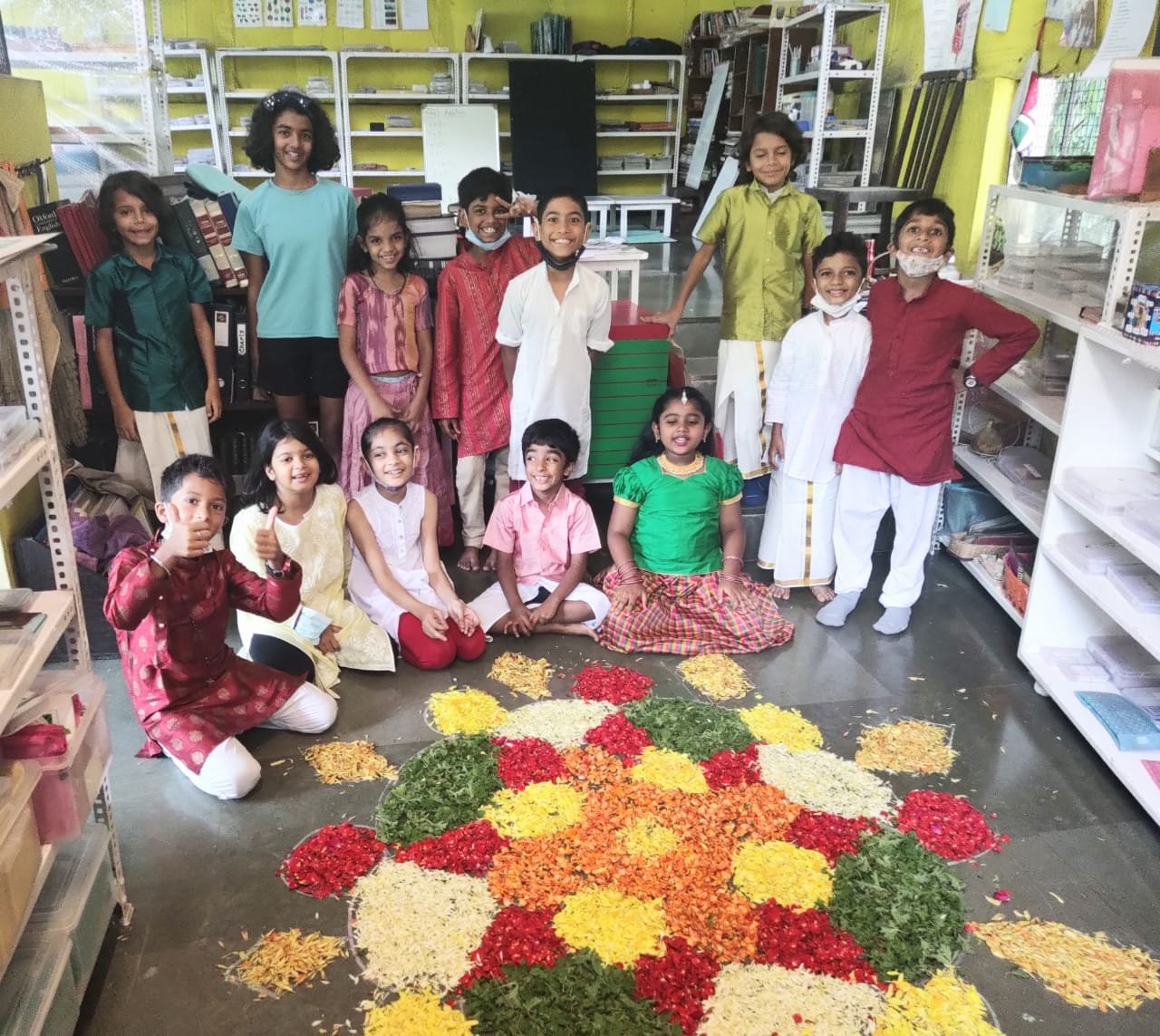
Golden Bead Montessori House of Children admits students between the age of 2 1/2 years to 6 years (Primary) and 6 years to 12 years of age (Elementry).
The School was started with the aim of providing a healthy environment for children to engage in interactive learning, carefully prepared by trained Montessori educators.
In Golden Bead the environment facilitates thinking, imagination, and creativity to remove the fear of learning and foster a confident child. You are welcome to call and fix an appointment to visit the school.
THE PRIMARY CHILD
The Primary child is a sensorial Child and the Montessori environment is designed to stimulate his/her senses. This developmental phase generally takes place between the ages of 2.5 years and 6 years of age though it may be observed earlier or continue longer in specific cases. The Primary program lays the basic foundation of education and the curriculum continues to build on this foundation in later years.
It is a unique cycle of learning designed to take advantage of the child’s sensitive years, where he/she can absorb information from an enriched environment. The child who acquires the basic skills of reading and mathematics in a Montessori classroom has the advantage of beginning his/her education with interest, enthusiasm and confidence.
As the children work in a prepared Montessori environment, they develop a sense of order, discipline, independence, and responsibility. A child who is slow, works at his/her own pace without any pressure. By the same token, a child who is ready to advance is not held back because of age.
The Elementry Child
The Elementary Child is an Intellectually Stimulated Child trying to understand the world around him/her. The “Why?” child wants to answer questions for themselves and in this task, the trained Montessori educator helps him/her acquire the knowledge through research, interaction, and other modes of gathering and processing information.
The children working in mixed age groups 6 to 12 years offer opportunities for team work and social development. These mixed-age groups strengthen the entire group and develop lasting relationships.
Older children serve as role models within the group. They provide support and development through social interactions and actual classroom presentations.
The younger children look up to older children to learn new skills and have peers to work within areas of the curriculum in which they may be more advanced.
Within this supportive, inclusive Montessori group, children work through the curriculum at their own pace, accelerating during some tasks or taking additional time with others.



